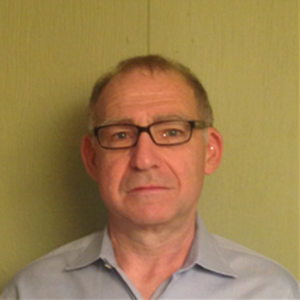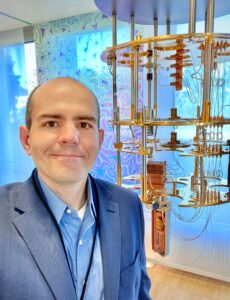
- This event has passed.
Quantum Generative Models of Financial Time Series
Abstract
Our research program investigates quantum models for the simulation, classification, and prediction of financial time series. Financial processes, such as asset prices, interest rates, and forex rates, exhibit complex dynamics on different time scales. These processes are partially observable, and we identify the underlying internal dynamics through stochastic observations.
A promising research direction involves using quantum Completely Positive Trace Preserving (CPTP) maps, or quantum channels, as generative models of partially observable stochastic systems. This approach is motivated by the dual nature of the channel’s operator-sum representation. The representation can be interpreted both as a description of unobservable quantum dynamics and as a Positive Operator-Valued Measure (POVM) measurement, where the outcomes correspond to specific operators defining the quantum process.
To quantize classical linear stochastic models, such as Hidden Markov Models (HMMs) or, more broadly, Observable Operators Models (OOMs), as quantum channels, we map the stochastic vector space and observable operators of the classical model to the space of density matrices and the corresponding operators of the quantum channel. We refer to these models as “quantum stochastic generators.”
We demonstrate that quantum stochastic generators provide a more efficient description of discrete stochastic processes in terms of state-space complexity compared to classical models. Specifically, it is shown that for every classical OOM of order \( n \), there exists a quantum stochastic generator of order \( N = \sqrt{n} \) which generates the same stochastic process.
We propose an efficient parameterization of quantum stochastic generators as unitary circuits with mid-circuit measurements. By utilizing the space of unitary circuits as a hypothesis space, we establish a formal learning model for the quantum generators. It is demonstrated that the landscape of the proposed learning model is smooth and auto-correlated. Smooth landscapes enable the implementation of efficient heuristic and gradient-based learning algorithms. For instance, we discuss a learning algorithm developed through hyperparameter-adaptive evolutionary search, which is used for learning generative models of synthetic and real-life financial time series.
As a future research opportunity, we present several quantum generator architectures that implicitly and explicitly model processes with long-term dependencies. Finally, quantum hardware implementations of the discussed models are demonstrated.
Speaker Bios

